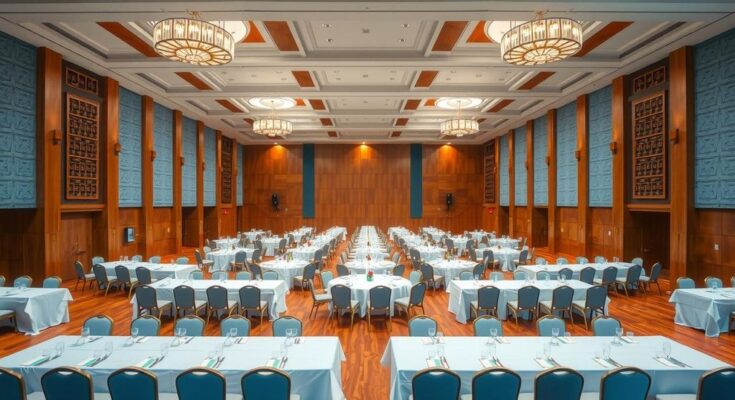The 2025 Summit for Democracy gathered key stakeholders in Monrovia, addressing critical issues in Liberia’s governance and democracy. Former President Sirleaf urged prioritization of national interests over political self-interest. Participants proposed actionable strategies for enhancing governance, accountability, and women’s representation, culminating in policy recommendations aimed at fostering inclusive development through the Arrest Agenda for Inclusive Development (AAID) 2025-2029.
The second Summit for Democracy, held on March 5, 2025, in Monrovia, brings attention to the pressing challenges faced by Liberia. Former President H.E. Ellen Johnson Sirleaf highlighted the country’s economic difficulties and the need for self-reliance. She emphasized the historic courage of Liberians and urged delegates to prioritize national interests over political gains.
This year’s summit focused on the theme “Exploring Pathways for Sustainable Democracy and Inclusive Development in Liberia,” which received funding from the Embassy of Sweden and technical support from UNDP alongside contributions from Naymote. Sweden’s Ambassador Mr. Karl Backéus reaffirmed his country’s long-standing commitment to supporting various sectors in Liberia, including democracy and human rights.
The two-day event attracted approximately 120 participants from ten counties, showcasing a wide range of perspectives on governance. Key sessions discussed governance improvements, accountability, and the importance of protecting human rights. Cllr. Moriah Yeakula-Korkpor emphasized citizen involvement, urging non-interference in justice processes by the government.
UNDP Resident Representative Aliou Dia echoed the sentiments, affirming that a robust democracy requires an accessible justice system for all Liberians. He recognized the barriers faced by women and marginalized groups and called for increased civic awareness and improved legal frameworks to ensure justice for everyone.
During the summit, the Irish Ambassador Gerald Considine underscored the importance of empowering marginalized communities, asserting that young leaders play a vital role in shaping an inclusive democracy. Other dignitaries, including the United Nations Resident Coordinator, Ms. Christine Umutoni, voiced their unwavering support for Liberia’s democratic efforts and transparency initiatives.
Panel discussions explored women’s representation in politics, with UN Women Representative Comfort Lamptey advocating for political parties to enhance their structures for female candidates. Esther S. Davis Yango reiterated the need for women in leadership, asserting that when given opportunities, women can contribute significantly to the nation’s progress.
Delegates proposed actionable strategies targeting improvements in governance and political representation. Recommendations included establishing a Community of Practice (CoP) to facilitate ongoing dialogue between government, civil society, and academia to ensure sustained political accountability in Liberia. The resolution document drafted at the summit will guide governmental actions towards realizing the Arrest Agenda for Inclusive Development (AAID) for 2025-2029.
Melvin L. Harding from the National Union of Organizations of the Disabled (NUOD) expressed gratitude towards the summit’s organizers and donors for their commitment to such a vital initiative.
The 2025 Summit for Democracy successfully highlighted critical issues facing Liberia and provided a platform for constructive dialogue on governance, accountability, and gender representation. Empowering citizens, especially women and marginalized groups, is essential for fostering a sustainable democracy. The recommendations derived from this summit aim to guide concerted efforts towards achieving inclusive development and strengthening the democratic framework in Liberia.
Original Source: www.undp.org




